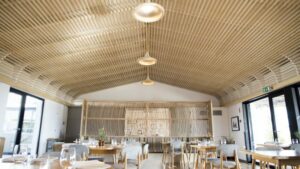
Restaurante Herdade do Esporão
What goes into the cuisine of the Herdade do Esporão Restaurant goes in this order: local, regional, national, and whenever possible certified organic. They make
Esta publicação também está disponível em:
![]() Português (Portuguese (Portugal))
Português (Portuguese (Portugal))